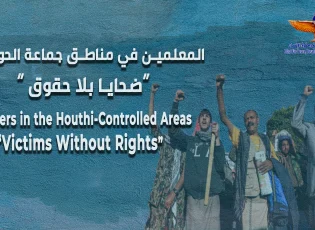In its second publication on the NHRS, Maat emphasizes the importance of integrated efforts between state institutions to turn the hopes envisioned in the Strategy into reality
Okeil highlights that implementing the National Strategy requires shared responsibility, and it is crucial to define the roles of all parties involved in its implementation
Sherif Abdel Hamid emphasizes that achieving the desired objectives outlined in the National Strategy necessitates the development of an executive action plan
Ali Muhammad urges for accelerating the implementation of the National Strategy for Human Rights Education
Cairo: September 17, 2023
Today, Sunday, September 17, 2023, Maat for Peace, Development, and Human Rights released a new report titled: "Two Years after the Launch of the NHRS... What Has been Achieved So Far?" Maat’s report marks the two-year anniversary of the Strategy's launch by the President of the Republic on September 11, 2021, and it consists of three main sections; the first section focuses on the paths of implementing the Strategy; the second section addresses the challenges encountered in its second year; and the third section highlights the role of civil society in monitoring the Strategy's progress.
The report examined the progress made in the implementation and fulfillment of the 226 targeted outcomes across four axes of the Strategy, namely: civil and political rights; economic and social rights; human rights of women, children, youth, and persons with disabilities; and education and capacity building in the field of human rights. This progress is measured through three executive tracks: legislative development, institutional development, and capacity building and education in human rights. Maat has employed an indicator that awards 10 points for each achieved target in the legislative and institutional measures and in the context of capacity building carried out by responsible entities; 5 points for each targeted outcome where positive measures have been initiated but not yet completed; and no points are awarded for targeted outcomes where no steps have been taken by the responsible entities.
The report commended the steps taken by the entities responsible for implementing the targeted outcomes of the NHRS, and highlighted notable progress in the legislative development path, with drafts of amendments to the Code of Criminal Procedure and the new labor law nearing completion. Additionally, the Council of Ministers has approved amendments to the Penal Code, including stricter penalties for harassment in workplaces and public and private transportation. Maat urges the House of Representatives to expedite the adoption of the laws outlined in the NHRS during the upcoming fourth session scheduled for October 2023.
Regarding institutional development, the report documents a set of positive measures and initiatives undertaken by the responsible entities. These include the ongoing plan to enhance penal facilities, the closure of outdated prisons and the establishment of new reform and rehabilitation centers aligned with international standards for prisoner treatment. Official data indicates that the Ministry of Interior has closed 27 out of the 43 existing prisons in Egypt, representing 62% of the total number. The report also highlights the imminent completion of investigations into the case known as the foreign financing issue, which could strengthen the relationship between the state and CSOs. Furthermore, the report emphasizes the significance of developing human rights units in ministries and governorates, urging necessary support for their establishment and calling on ministries without such units to expedite their creation.
In terms of capacity building and education in the field of human rights, the report recognizes the efforts made by concerned parties to implement outcomes requiring capacity building and education. It documents various training courses and programs conducted by the Ministry of Interior, Social Solidarity, Planning and Economic Development to enhance the capabilities of their respective workforce and promote awareness of the NHRS. The report also acknowledges the role of the Supreme Standing Committee for Human Rights in providing technical support to these ministries. However, the report notes a need for greater public awareness of human rights, prompting the President of the Republic to emphasize the importance of spreading the culture of human rights during the Strategy's second year.
At the level of capacity building and education in the field of human rights, the report noted the efforts made by some concerned parties to implement the results that require going through the path of capacity building and education. The report documented the training courses and capacity building programs carried out by the Ministry of Interior, Social Solidarity, Planning and Economic Development to build the capabilities of workers in These entities and the definition of the National Human Rights Strategy, as well as the role of the Permanent Supreme Committee for Human Rights in providing technical support to these ministries. The report indicated that despite these efforts, there remains a weakness in public awareness of the culture of human rights, which prompted the President of the Republic to direct the necessity of working to spread the culture of human rights during the second year of the launch of the strategy.
Ayman Okeil, an International Human Rights Expert and Chairman of Maat, expresses optimism about the second year of the NHRS, considering it a hopeful opportunity to improve the human rights situation in Egypt and overcome the challenges hindering the achievement of targeted results. Okeil emphasizes the necessity of integrated efforts among all stakeholders, including CSOs, to implement the Strategy's outcomes, and underscores the importance of defining the roles of all parties involved based on the Strategy's outcomes.
Similarly, Sherif Abdel Hamid, Vice-chairman of Maat for Peace, asserts that the targeted outcomes of the Strategy still require an executive action plan. He warns that the delay in developing this plan may impede progress toward achieving certain outcomes. Abdel Hamid emphasizes the need for collaboration among all stakeholders, including the National Council for Human Rights and CSOs, to develop the necessary action plan.
Finally, Ali Muhammad, Director of the Research and Studies Unit at Maat, calls on the responsible entities to accelerate the implementation of the National Strategy for Human Rights Education in line with the targeted outcomes of the Strategy and considering a societal debate that includes all stakeholders to consider the dilemma of the debt crisis and its impact on human rights, particularly economic and social rights.

 |
 |











